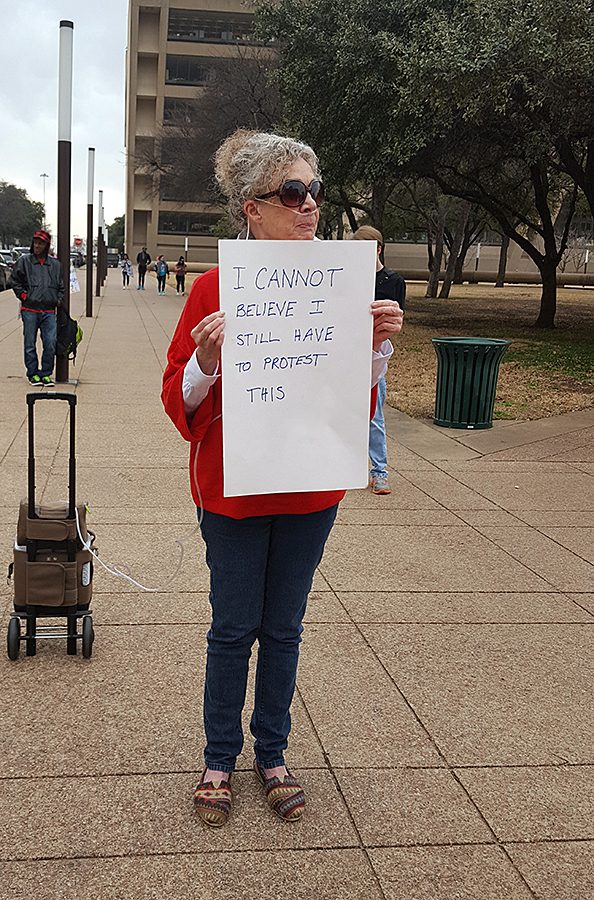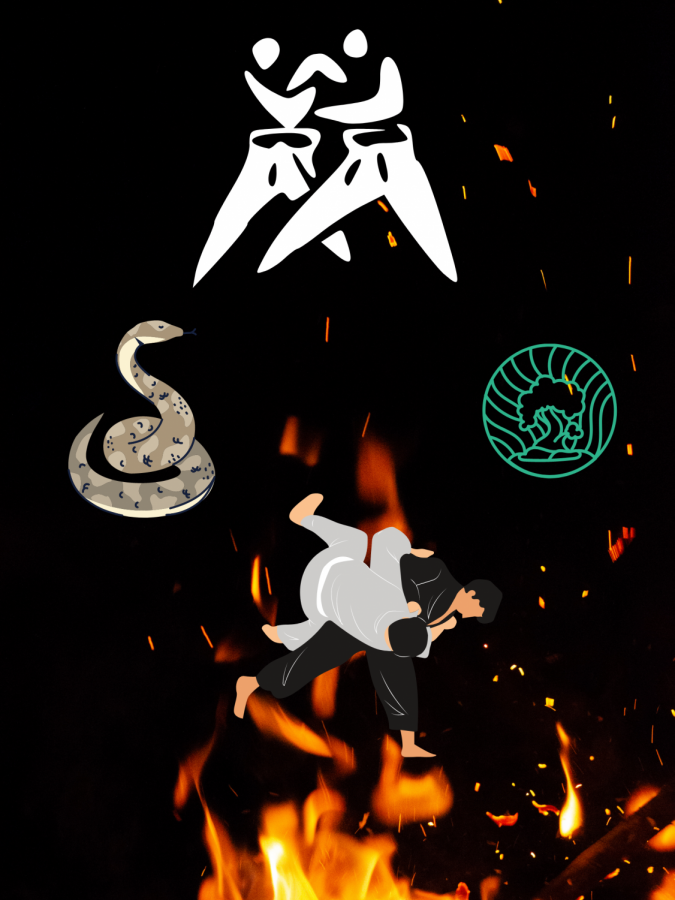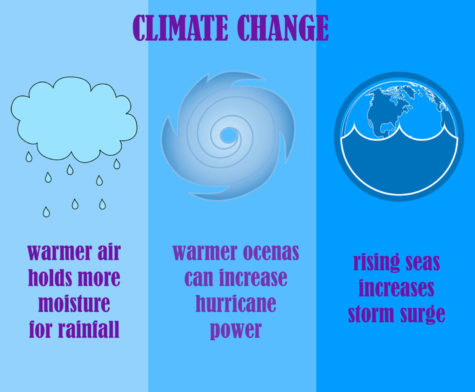Climate Change’s Impact On Our Weather
October 26, 2018
In the course of a month, four destructive storms have hit the U.S. East Coast and the coasts of Southeast Asia.
Hurricane Florence, like Hurricane Harvey last year, is yet another example of what effect climate change has on storms. These shifts can possibly be due to climate change from increasing sea surface temperatures and a rise in sea levels, which can impact the destructiveness of a storm.
According to the National Oceanographic and Atmospheric Association, 90 percent of man-made trapped greenhouse gases go into the ocean, thus raising ocean heat content. As a result, last year’s ocean heat content was the hottest on record. In a CNN interview, Kevin Trenberth, a senior scientist at the National Center for Atmospheric Research, explained how this affects storms.
“The observed increases of upper [ocean heat content] support higher sea surface temperatures and atmospheric moisture, and fuel tropical storms to become more intense, bigger and longer-lasting, thereby increasing their potential for damage,”Trenberth said .
The Center for Climate and Energy Solutions stressed that a rise in sea level is more likely to make coastal storms and hurricanes more dangerous over time.
The C2ES says that in the next century, sea levels are predicted to rise one to four feet, which, in result, can overflow coastal storms. They believe that the $65 billion of damages done by Hurricane Sandy in 2012, was because of the coastal flooding from sea level risings.
AP Biology teacher Dustin Barth believes that the idea of climate change shifting patterns in the weather is a possible theory based on Earth’s history.
“Climate is cyclical,” Barth said. “We’ve experienced throughout Earth’s history many times where you have a change in weather patterns regardless of man’s impact on it, but to think that man hasn’t impacted the circumstances would be ridiculous.”
However, Barth also believes that more research needs to be done to prove this from comparing periods in earth’s history, where there was also very destructive storms.
“To say that [climate change] is the only cause is something that has to be researched,” Barth said. “We need more data and research to solidify the truth.”
The C2ES has called for more action to be done to stop the intensity of these storms by urging the world to preserve coastal wetlands, dunes and reefs to absorb the storm surges. Sophomore Nmesomachukwu Ukachi-Nwata, believes we as people should take more strides to help stop this damage.
“We have all these modern technologies and resources and these storms are still having these disastrous effects,” Ukachi-nwata said. “Who knows how this increasing intensity can affect us in the future?”
Barth thinks that this issue needs to be addressed before it can cause irreversible damage.
“If we don’t do something about it then we’ve basically doomed ourselves if things keep getting worse,” said Barth.
On Monday, Oct. 8, the U.N. warned that the world has 12 years to limit climate change catastrophes.
“Dinosaurs didn’t get to choose when the meteor hit the earth,” said Barth. “Have we chosen our own fate?”























